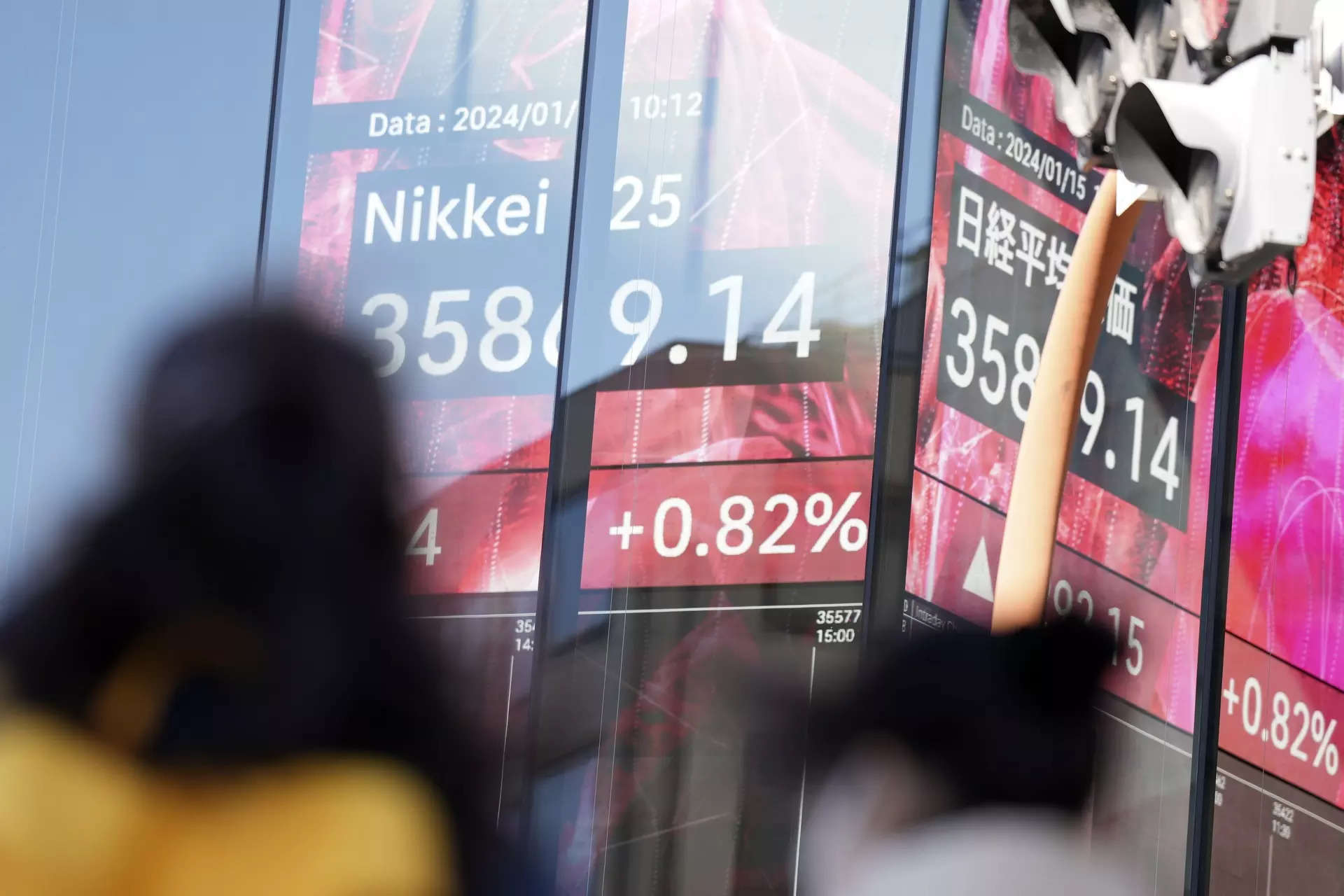Tech pulls down Asia stocks, dollar gains on inflation data
Asian stocks slumped on Friday, tracking tech-led declines on Wall Street overnight after hotter-than-forecast U.S. inflation knocked back bets for how soon and often the Federal Reserve will cut interest rates.
slumped on Friday, tracking tech-led declines on Wall Street overnight after hotter-than-forecast U.S. inflation knocked back bets for how soon and often the Federal Reserve will cut interest rates.U.S. benchmark bond yields held near the 4.3% level they reached on Thursday for the first time this month, following their biggest jump in three months. The dollar advanced to its highest since March 5 against a basket of major peers.
Crude oil slipped back after its overnight surge above $85 for the first time since November, and remained on track for a rally of nearly 4% this week.
Bitcoin edged back toward the all-time high reached on Thursday.
A bigger-than-expected rise in producer prices in U.S. data overnight added to a heated reading on consumer inflation earlier in the week to see futures markets cutting the odds of a June policy easing to 60%, from about 67% late on Wednesday, according to LSEG's rate probability app. For 2024, the market is now pricing in less than three rate cuts, down from three to four roughly two weeks ago.
The biggest reaction was in the U.S. Treasury bond market, with a pop in yields pulling the dollar along as well.
The 10-year Treasury yield last stood around 4.28% on Friday, holding on to most of its more than 10 basis point jump from the previous session.
The dollar index, which measures the currency against the euro, and four other peers, added 0.07% to 103.45, following a 0.58% rally on Thursday, its best day in more than a month.
"At the margins, price pressures are looking more stubborn, with the process of disinflation taking longer than hoped," said Kyle Rodda, senior markets analyst at Capital.com.
The direct impact on equities was muted, but the jump in long-term yields is "raising the spectre of a potential air pocket ahead for the tech-driven rally," he said.
U.S. stock futures pointed marginally lower following a 0.29% decline in the S&P 500 on Thursday. However, the impact of a big sell off in chip-sector shares reverberated in Asian markets, weighing on stock indexes around the region.
Hong Kong's Hang Seng slid more than 1%, as did South Korea's Kospi.
Mainland Chinese blue chips, however, were little changed, despite the central bank's decision to forgo any easing in keeping the medium-term lending facility rate unchanged on Friday.
Japan's Nikkei eased 0.3%.
Signs continue to build for an exit from ultra-easy stimulus at the Bank of Japan's two-day policy meeting ending on Tuesday of next week.
The government appeared to back a policy shift, with Finance Minister Shunichi Suzuki stating on Friday that the economy is no longer in deflation, despite saying earlier in the week that it was too soon to declare an end to the nation's protracted spiral of falling prices.
Jiji news agency reported on Thursday that the BOJ has started to make arrangements to end its negative interest rate policy at the gathering. Sources have told Reuters that the central bank will debate the end of negative rates if the preliminary survey on big firms' wage talks, due on Friday, yields strong results.
Japan's 10-year bond yield rose to 0.795% for the first time in more than three months.
Any yen strength was overpowered by the resurgent dollar, which gained 0.11% to 148.48 yen, continuing its rebound from a drop as low as 146.48 a week ago.
The euro extended Thursday's decline and reached a low of $1.08765, its lowest level in a week. Last Friday, it climbed as high as $1.0980, a two-month high.
In cryptocurrencies, bitcoin added 1.4% to $71,650, climbing back toward the record high of $73,192.79 from the previous session.
Software firm MicroStrategy announced plans this week to raise capital through convertible bonds, offering to buy bitcoin for the second time in less than 10 days.
Elsewhere, oil prices succumbed to some profit taking on Friday, following strong gains this week amid sharp declines in U.S. crude and fuel inventories, drone strikes on Russian refineries and a rise in energy demand forecasts. [O/R]
Brent crude oil futures for May fell 41 cents, or 0.5%, to $85.01 a barrel. U.S. West Texas Intermediate (WTI) crude for April fell 32 cents, or 0.4%, to $80.94.
Source: Stocks-Markets-Economic Times
